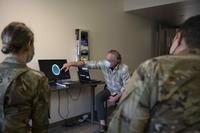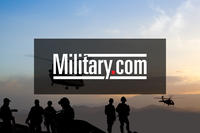Posted at the Request of the Dept. of Defense
By Rosemary Freitas Williams, Deputy Assistant Secretary of Defense for Military Community and Family Policy
Ebola. It is on everyone’s mind, especially our military families. While the number of troops deploying to Africa may be relatively small, there is concern.
This is a normal reaction to the recent seismic shift in military operations from 13 years of the image of the modern warrior, loaded with high-tech weapons and equipment in the Middle East, to seeing service members four thousand miles away in Liberia.
In times of worry and anxiety we are quick to turn to the Internet, hunting for information that rings true to help quell the rising fear that can be easily enhanced by the 24-hour news cycle. Unfortunately, an Internet search that brings up 1.8 million articles is less than helpful.
I would like to focus on where military families can go for more information and support. But, before I do that, it’s very important to understand what the military is going to do in West Africa – and just as important, what they are not going to do. They will provide the unique capabilities and essential support that the U.S. military does best, such as engineering, and logistics, so the non-government agencies can respond to this humanitarian crisis to properly isolate and care for the victims of Ebola. One thing the deployed military will not do is provide direct care of patients. It’s worth repeating, this critical military mission to Liberia is not about our troops providing direct care to patients in that country.
There is no more important mission for the Department of Defense than protecting our service members and their families. And, today is no different than any other; every preventive measure is in place to protect the health of the military families’ deployed loved ones. This includes but not limited to:
- Every deployed service member will have pre-deployment examinations and the requisite immunizations such as yellow fever and malaria.
- They will be evaluated twice a day for temperature and other changes. This constant monitoring will ID anyone at an increased risk.
- They will also be closely evaluated by medical personnel at the first sign to determine if they should be quarantined for 21 days.
- Once back in the United States after deployment, there will be face-to-face interviews and temps taken twice a day to continue to monitor individual health. Travel will be restricted for 21 days. This will ensure there is no potential exposure to other people, which has been a recent issue.
On the local level the Army is hosting town halls meetings for soldiers and their families where soldiers are scheduled for deployment to Liberia. If you have a loved one about to deploy, this is a unique chance for first-hand information. Take advantage of the opportunity to ask questions. Information is power and getting information can be empowering.
OK, now on to some information on the Internet that is worth reading and sharing.
First, for as long as there has been a military – families at home worry about the health and safety of their loved ones, wherever deployment takes them. And that’s where the support that Military OneSource provides can be invaluable.
Confidential help for any issue – large or small – that may be troubling you is available to all service members and their families through the Military OneSource, 24-hour call center at 800-342-9647. Whether you call or click, Military OneSource will connect to you to resources and support you may need to help navigate military life.
Confidential help is also offered through Military Family Life Counselors who are available on military installations around the world.
Next, before you commit to that web search of millions of documents, here is the shortcut to the official website of the military health system and defense health agency: www.health.mil/ebola. Visit this site for the latest information around the medical aspects of the military mission to Liberia.
Finally, a wide range of information about the military mission overall can be found at http://www.defense.gov/home/features/2014/1014_ebola/
Again, the number one priority is and will always be, to protect our deployed service members and their families.
It will likely be a very stressful holiday season for many in our military community. If you know of someone who has a deployed family member, please reach out to them. And when appropriate, remind them of the help that is available through Military OneSource, the 24-hour, one-stop for all the resources and information today’s modern military family needs to be successful and resilient.
- See more at: http://www.dodlive.mil/index.php/2014/10/ebola-informed-and-not-afraid/#sthash.iw4mjt1R.dpuf



